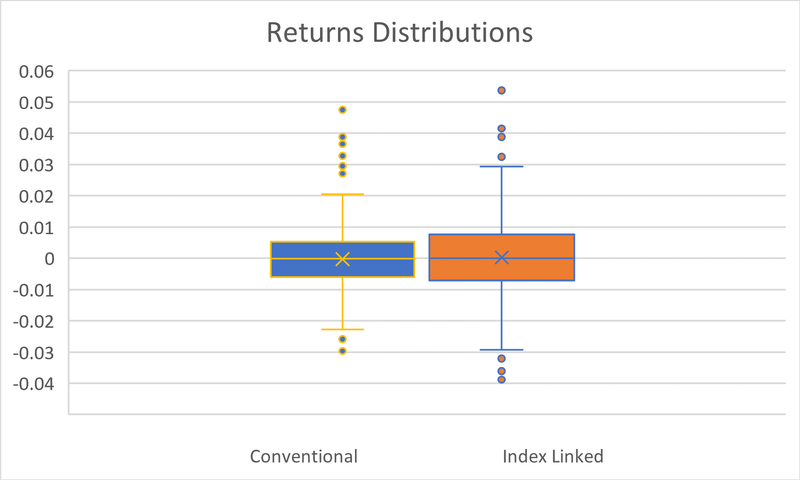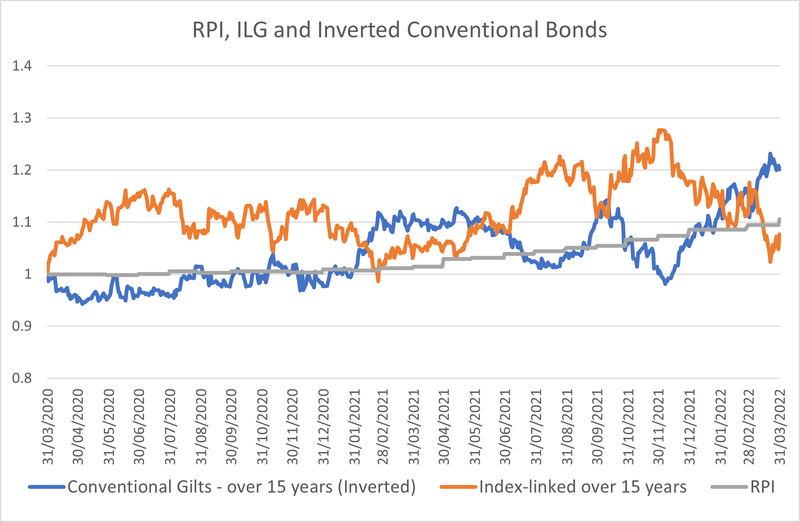The Frontiers Of Ethical Finance
By
Simon Mills & Mike Wardle
Published by IFC Review, IFC Media (7 April 2021).
This article was initially published on ifcreview.com on 7 April 2021.

At last count, there were 12 different COVID-19 vaccines approved for use or approaching the end of clinical trials[i]. Although there is a way to go until humanity is out of the woods, nations are beginning to look beyond the fight against this viral menace and starting to consider the challenges they face on the long and rocky road to economic recovery.
Leaving aside the damage done to public finances and ballooning government debt[ii], it is widely agreed that the pandemic has hidden major systemic issues[iii] within the global economy which will be back with a vengeance once the world recovers.
The Beguiled
Even during the height of the COVID crisis, climate change was never far from the headlines - whether driven by the drumbeat of doom emanating from NGOs and academics, the schadenfreude associated with the discomfort of fossil fuel companies seeing losses mount[iv], or the posturing of politicians keen to capture the perfect soundbite policy in advance of the 2021 United Nations Climate Change Conference (COP26[v]).
Emissions are firmly in the spotlight, putting pressure on fossil fuel producers caught between gathering momentum on disinvestment[vi], and major emitters who are seeking radical (non-fossil fuel) technological solutions to the climate crisis[vii].
Meanwhile, as the tragedy in Texas played out[viii] and a glacier collapsed in the Himalayas[ix], the dangers of overlooking adaptation were laid bare.
Unforgiven
Two further, interlinked factors can be thrown into the mix: the pandemic is a zoonotic disease (one that has jumped from animals to humans) and it is widely agreed[x] that as human destruction of ecosystems continues, driven in part by poverty, the risks of further zoonotic pandemics will increase.
Poverty is both a result of and a cause of climate change and ecosystem degradation, and the economic disruption caused by COVID-19 is predicted to impact most heavily on the poor[xi] .
Capitalism is the greatest engine of human development and prosperity ever invented. However, the 2008 financial crisis, COVID and climate change are challenging society’s faith in the free market[xii].
For the last two years, the World Economic Forum event in Davos has focused on turning this tide of disillusionment by looking beyond stockholder capitalism to stakeholder capitalism[xiii] which places inclusion at its heart. Under this philosophy, a company's purpose is to create long-term value, not to maximise short term profits which enhance shareholder value at the cost of other stakeholder groups.
This esoteric concept, once the purview of Marxist economists, has found fertile ground as issues that were once considered secondary for CEOs and boards have become important determinants of firms’ capacity to create and sustain economic value. As a result, ESG issues are increasingly recognised[xiv] as bottom-line issues in a world where technology, regulation, and other features of the operating environment can change quickly.
Paint Your Wagon
For financial centres seeking to encompass this new landscape, there are some interesting challenges on the frontiers of ethical finance. Challenges, such as delivery on the United Nations Sustainable Development Goals (SDGs), that have the potential to make or break reputations.
Financial Inclusion is, surprisingly, the most important component to unlocking action on climate change and biodiversity (see figure 1). Without financial inclusion, citizens do not have agency, and without agency, they cannot take action. Financial centres have an essential role in delivering financial inclusion through leadership, advocacy, and innovation in products, services, and regulation. Those that succeed will reap the rewards of enhanced markets and status. Those that fail will lose political capital.
Figure 1 Links Between Financial Inclusion and the UN SDGs

Reporting Requirements will come under the spotlight as investors seek ever greater granularity in ESG performance when making investment decisions. Although the tussle between voluntary standards and regulation will continue, it is likely that regional standards, such as the EU Taxonomy Regulation and the Non-Financial Reporting Directive (NFRD), will rise in importance. As a result, financial centres may find competitive advantage either by ‘gold plating’ these standards or by racing to the bottom to attract listings from companies with less than stellar reputations.
Disinvestment And Stranded Assets may compound the woes of any centre wishing to follow the latter course. With momentum building on disinvestment and the trouble for fossil fuel companies likely to continue[xv], consideration must be given to the exposure of stock exchanges to Carbon Risk9, with some larger centres - Moscow, New York, and London among them - particularly vulnerable.
Investment In Infrastructure will play a critical role in post-COVID recovery plans. Despite the temptation for policymakers to fall back on high-carbon growth models[xvi], momentum is building for low-carbon green growth, and IFCs, with their deep pools of capital, are perfectly placed to direct the flow of finance to more sustainable paths. To help nations and companies on this road, new products and services, such as green bonds and loans, are becoming ever more popular and though questions are being asked as to whether the market’s rapid expansion will lead to a price readjustment[xvii], the likely hit to government debt may well make them even more attractive.
Venture Capital And Private Equity firms are looking beyond FinTech to the green tech, also known as ‘Impact Tech’ field. A host of start-up companies are panning for gold, hoping to strike it rich by hitting on the definitive solutions to a panoply of environmental woes, from air pollution to water purification, whilst larger tech firms are pouring billions into battery technology. This is creating a new role for IFCs as funding hubs for the green tech revolution, with some centres, such as London and San Francisco, seeing a 280 per cent increase in Impact Tech over the last five years[xviii].
A Fistful Of Dollars
There will, of course, be both winners and losers in this scramble for the frontiers of ethical finance. Small, agile international financial centres are at a particular advantage. Recent data captured by the Global Green Finance Index (GGFI) indicates that IFCs have improved their ratings over time in the GGFI as centres of expertise in green finance (see Figure 2), driven by the assessments of financial professionals across the world. This is compounded by their relatively low carbon risk exposure.
Figure 2: Overall Rating Of IFCs In The Global Green Finance Index

The Good The Bad And The Ugly
Looking forward to the next 12-18 months, three principal challenges stand out:
- A Green Recovery still hangs in the balance. Although politicians are paying lip service to the idea that the post-COVID recovery cannot be built on the same model as the old system, it remains to be seen whether green growth will be more than a buzzword. It is more likely that, despite the urgency of the climate crisis, we will see evolution rather than revolution as the super-tankers which are markets tend to make course corrections rather than handbrake turns. In this respect, there is an opportunity for IFCs to take a leadership role in developing partnerships and creating dialogue with the public sector to maximise its enabling role.
- A Green Bubble remains a possibility as interest in green bonds continues to rise and money floods into impact tech. Some commentators are beginning to make comparisons to the dotcom bubble of the nineties[xix] – but out of that bubble came Google, Netflix, Alibaba and Amazon. Could the same happen with green?
- COP26 casts a long shadow as what happens in Glasgow this coming November will chart the course for the world’s development for years to come. Will the US, emerging from the fever dream of the Trump years, reassert itself on the world stage? Is US/China cooperation on decarbonisation likely? Will the stranding of fossil fuel assets change from risk to certainty or will Russia and the OPEC nations conspire to throw a spanner in the works?
Regardless of the outcome, the unstoppable momentum of physics, economics and public opinion are continuing to drive green finance forward, and IFCs must adapt to maximise their share of these new markets on the wild frontiers of ESG or be sidelined.
Footnotes
[i] BSI 2021 Types of vaccines for COVID-19 British Society For Immunology https://www.immunology.org/coronavirus/connect-coronavirus-public-engagement-resources/types-vaccines-for-covid-19
[ii] Letzing J 2020 Countries Are Piling On Record Amounts Of Debt Amid COVID-19. Here's What That Means World Economic Forum https://www.weforum.org/agenda/2020/11/covid-19-has-countries-borrowing-money-just-about-as-quickly-as-they-can-print-it/
[iii] UN 2020 Recover Better United Nations Department of Economic And Social Affairs https://www.un.org/development/desa/en/wp-content/uploads/2020/07/RECOVER_BETTER_0722-1.pdf
[iv] Brower D & Raval A 2021 Big Oil Hit By Record Losses From Pandemic And Clean Fuel Financial Times https://www.ft.com/content/5abf032a-bca1-444c-8aaf-d637e01460cc
[v] COP 26 https://ukcop26.org/
[vi] Ford G & Mills S 2019 Value And Values In A Warming World Global Green Finance Index https://www.longfinance.net/programmes/sustainable-futures/london-accord/reports/value-and-values-warming-world/
[vii] Green M & Jessop S 2020 Past its peak? Battered Oil Demand Faces Threat From Electric Vehicles Reuters https://www.reuters.com/article/us-data-esg-autos/past-its-peak-battered-oil-demand-faces-threat-from-electric-vehicles-idUSKBN22V1HY?edition-redirect=uk
[viii] Galbraith J 2021 Texas Froze By Design Project Syndicate https://www.project-syndicate.org/commentary/free-market-utility-model-failed-texas-by-james-k-galbraith-2021-02?
[ix] , Doman M Shatoba K 2021 Tracing The Path Of Destruction In India’s Himalayas ABC News https://www.abc.net.au/news/2021-02-11/satellites-capture-scale-of-indian-glacier-collapse/13137924?nw=0
[x] The University of Geneva et al. https://www.coursera.org/learn/global-health-human-animal-ecosystem
[xi] World Bank 2020 COVID-19 To Add As Many As 150 Million Extreme Poor By 2021 World Bank https://www.worldbank.org/en/news/press-release/2020/10/07/covid-19-to-add-as-many-as-150-million-extreme-poor-by-2021
[xii] https://news.gallup.com/poll/240725/democrats-positive-socialism-capitalism.aspx
[xiii] Schwab K 2021 What Is Stakeholder Capitalism? World Economic Forum https://tinyurl.com/ekmc6ett
[xiv] PWC 2020 ESG Oversight – The Corporate Directors Guide PWC https://www.pwc.com/us/en/services/governance-insights-center/esg-guidebook-layout-final.pdf
[xv] The Economist 2020 Investment In Oil Supply Has Collapsed. It May Not Roar Back The Economist https://tinyurl.com/t7t3eys
[xvi] Myllyvirta L, Zhang S & Shen X 2020 Analysis: Will China build hundreds of new coal plants in the 2020s? Carbon Brief https://www.carbonbrief.org/analysis-will-china-build-hundreds-of-new-coal-plants-in-the-2020s
[xvii] Stegeman H 2018 Green bubble or brown banana peel? Triodos https://www.triodos-im.com/articles/2018/green-bubble-or-brown-banana-peel
[xviii] Butcher M 2020 London And SF Have Become Impact Tech Hubs, With 280% Increase In VC In 5 Years Tech Crunch https://tinyurl.com/xewkehtj
[xix] Clark R 2021 Green Energy Is A Dot-Com Bust Waiting To Happen The Spectator https://www.spectator.co.uk/article/green-energy-is-a-dotcom-bust-waiting-to-happen